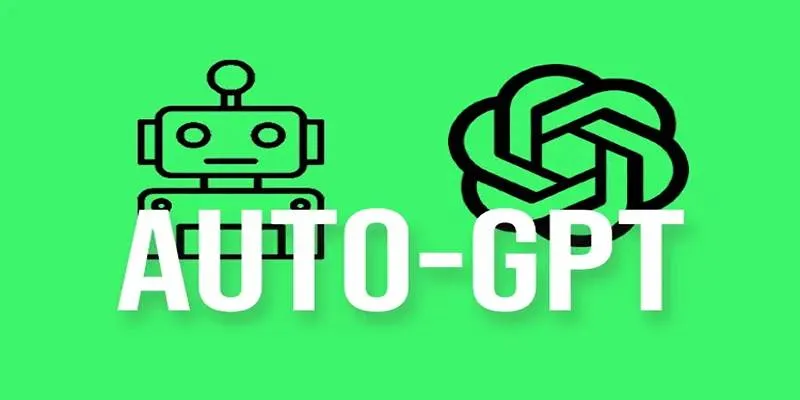Artificial Intelligence (AI) is no longer a futuristic concept; it is a practical tool being used by businesses around the world. From small startups to global corporations, companies are integrating AI to make operations faster, smoother, and more cost-effective. This post explores how real-world companies are using AI to streamline tasks, improve customer service, reduce costs, and gain a competitive edge.
Why AI Matters in Business Today
In today’s fast-paced economy, businesses need to move quickly and efficiently. AI helps companies handle complex tasks that once required hours of manual labor. It reduces human error, automates routine work, and provides insights that help in making better decisions.
Companies adopting AI are experiencing advantages such as:
- Faster task execution
- Better customer engagement
- Lower operational costs
- Improved data management
- Smarter resource planning
By turning repetitive tasks over to machines, companies can focus more on creativity, innovation, and growth.
Amazon: Optimizing Logistics Through Smart Automation
Amazon remains a leader in AI-driven logistics. The company uses machine learning algorithms and robotics to streamline its vast delivery system. AI helps Amazon predict customer demand, plan inventory, and manage delivery routes.
Key AI Applications at Amazon:
- Automated warehouses: Robots transport products efficiently to packing stations.
- Smart forecasting: AI predicts what items are likely to be purchased and ships them closer to customers in advance.
- Dynamic pricing: Machine learning adjusts product prices based on demand and competition.
These innovations have enabled Amazon to offer faster shipping options while managing costs effectively.
Starbucks: Enhancing Customer Engagement with Predictive AI

Starbucks uses AI not just for operations but also for improving the customer experience. The brand’s Deep Brew platform collects and analyzes customer preferences, purchase history, and local weather to suggest personalized drinks and offers. This personalized engagement directly affects customer satisfaction.
AI Roles in Starbucks Operations:
- Personalized recommendations: Based on a customer’s past orders and behavior.
- Inventory planning: Ensures that products are available based on seasonal trends and store-specific demand.
- Store placement: AI helps decide where new outlets should be based on foot traffic and demographics.
Through AI, Starbucks continues to build stronger, more personalized relationships with its customers while maintaining operational efficiency.
Netflix: Making Smart Decisions with User Data
Netflix is a prime example of a company using AI to both entertain and operate efficiently. Its recommendation system is powered by AI, analyzing user preferences, watch history, and engagement time.
AI in Netflix’s Business Model:
- Content recommendation engine: Increases viewer engagement and satisfaction.
- Audience insights: Helps decide which new series or movies to produce.
- Streaming optimization: Reduces buffering by predicting demand for specific content in certain regions.
With AI, Netflix manages to keep its audience engaged while minimizing content production risks.
Tesla: Driving Automation in Real Time
Tesla’s vehicles are designed around AI technologies. The company collects real-time driving data and feeds it back into its self-driving algorithm. Every car on the road becomes a data point for improvement. Tesla’s software continues to learn over time to optimize performance.
Tesla’s AI Advantages:
- Autopilot and Full Self-Driving (FSD): Navigate traffic, change lanes, and park autonomously.
- Predictive maintenance: AI monitors vehicle components to alert drivers before issues arise.
- Battery optimization: AI balances power usage for maximum efficiency.
Tesla’s AI systems are helping the company push boundaries in mobility and energy.
Walmart: Transforming Retail with AI
Walmart is another retail giant leveraging AI to stay ahead. The company uses computer vision, machine learning, and data science to keep shelves stocked and customers satisfied.
How Walmart Uses AI:
- Smart replenishment: AI tracks real-time inventory and orders items before they run out.
- Customer service chatbots: Handle frequent questions and issues online.
- Store layout planning: Based on heatmaps generated from customer movement data.
AI ensures that Walmart stores operate with fewer errors and better efficiency, especially during high-traffic periods.
Coca-Cola: Innovating in Product Development and Marketing
Coca-Cola has integrated AI in both its product and marketing strategies. The company uses data-driven insights to identify trends and deliver timely campaigns.
AI Applications at Coca-Cola:
- Flavor creation: Social listening tools analyze customer feedback and trends to create new products.
- Ad targeting: AI ensures the right message reaches the right audience.
- Bottling line automation: Monitors production in real-time to avoid downtime.
Coca-Cola uses AI not only to boost production but also to stay culturally relevant in a fast-changing market.
Google: Leading AI Innovation Across All Products

Google’s AI is embedded in nearly every product—from search engines to advertising and productivity apps. With tools like Google Assistant, Gmail Smart Reply, and Google Ads, AI has become the backbone of their business.
AI in Google Services:
- Search algorithm: Uses machine learning to deliver the most relevant results.
- Ads targeting: Connects businesses with ideal customers based on behavior.
- Language translation: Google Translate uses neural networks for better accuracy.
- Maps and traffic prediction: Real-time AI-based traffic insights.
Google’s mastery of AI showcases how even core products can evolve through smarter technology.
Small Businesses Are Embracing AI Too
AI is no longer just for tech giants. Thanks to cloud-based tools, small businesses can now access AI features that once seemed out of reach.
Common AI Tools Small Businesses Use:
- Email automation: Sends personalized marketing messages.
- Chatbots: Handle inquiries on websites and social media.
- Sales forecasting: Predicts which products or services will perform best.
- Appointment booking: Automates calendar scheduling and reminders.
These tools help smaller companies compete by saving time and improving service quality.
Conclusion
The integration of AI into business operations is not just a passing trend—it’s becoming the standard. Companies like Amazon, Tesla, and Netflix are demonstrating how AI can create real efficiencies across industries. Even smaller firms are catching on, using affordable AI tools to streamline their work and improve customer service. By using AI smartly and ethically, businesses can unlock new levels of productivity, accuracy, and growth. The future of business is intelligent, and it’s already taking shape today.
 zfn9
zfn9























